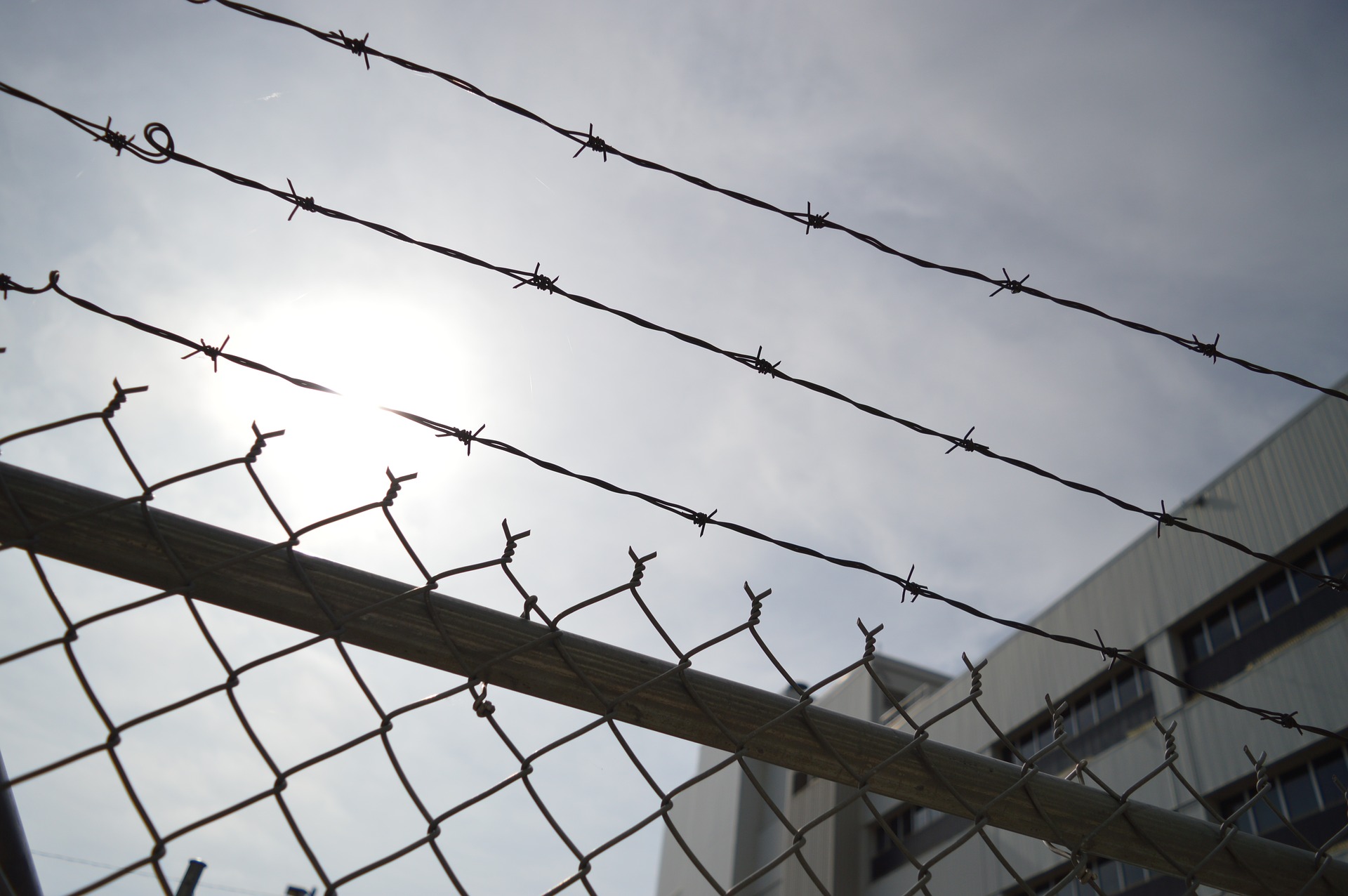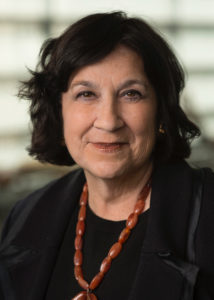
Witness to Mass Incarceration
PATRICIA GROSSMAN: As a public speaker, you introduce yourself as a “formerly incarcerated aging New York Jewish lesbian feminist.” Let’s focus first on your incarceration at age 60. I understand you were placed in solitary confinement during your second prison term. Why were you put in isolation?
EVIE LITWOK: I was incarcerated in two federal prisons. In both, medical care was essentially nonexistent. If you got cancer in prison, even if caught early, it was a death sentence.
We had one Physician’s Assistant who saw 1,100 women. Whether you came in with a headache, broken foot, cancer, or a cyst, he had the same response: you are fat, walk on the track, drink water.
[A friend of mine] went in to see him for severe stomach pain. She couldn’t move. He gave her the fat speech and sent her back to her unit. Two weeks later her gall bladder burst and she died.
I wrote a story about the officer’s failure to do a simple blood test. I blamed him for her unnecessary death. I emailed the piece to be posted on my blog. Officers read it. An hour after the post went up, I was shackled and sent to solitary. I was told I would be there until my release date because I had written about an officer.
PG : It’s hard for most people to imagine the experience of being held in solitary confinement. Please describe your living conditions and your day-to-day life in solitary.
EL: Solitary confinement is a prison-within-a-prison. The second prison where I was held is run by four officers who answer to no one.
So that people can understand the gravity of solitary, I ask them one question: How long could you sit on your toilet, bathroom door closed, no cell phone, no TV, no reading material?
Solitary confinement is a place where I heard 60 women screaming, “Get me the fuck out of here,” and I could hear each one losing her mind. Solitary is where my former cellmate, a 67-year-old Jewish woman, bashed her head against the wall because she couldn’t take the isolation.
I begged for toilet paper. I was told, “Wipe yourself.” The temperature was below 60 degrees. I asked for an extra blanket—the officer laughed. I asked for my blood pressure to be taken because I felt sick. My blood pressure was 200/100 when it was taken two weeks later. I asked to go to the hospital and the guard laughed.
I didn’t think about committing suicide, as many of the women did, but I thought, “It would be okay with me if I didn’t wake up tomorrow.”
PG : What role did your Jewish identity and practice play in this experience? What changed?
EL: Prior to my incarceration, I didn’t attend weekly Shabbat services. Once inside, I went to weekly services. I found myself wanting a siddur—a prayer book—and needing to hold it whenever I could. When I was alone, I shut my eyes, put my hands over them, and said the Sh’ma, the prayer of faith in G-d, dozens of times a day.
Since my release, I attend weekly services at the SAJ (Society for the Advancement of Judaism). I am inspired by Rabbi Lauren Grabelle Hermann, a truly remarkable spiritual leader.
I do not believe I would have survived prison without my faith.

Evelyn Litwok. Photo credit: Larry Bercow
PG : What resources were you offered when you got out of prison? How does a formerly incarcerated woman in her sixties find her way back into society?
EL: When I was released, I found myself homeless, penniless and physically, mentally, and emotionally challenged from being in prison and solitary confinement. I was given a set of outdated papers listing resources that did not exist. I had to find my way to nonprofit services offering me a hot meal, support to build a resumé, a two-week job training class—but no solution for housing or employment.
I am committed to creating a long-term solution for the 700,000 people being released from prison each year. I founded Witness to Mass Incarceration (Witness) to launch a number of projects directly aimed at reducing mass incarceration and to create a model for reentry that would result in the immediate re-engagement of a formerly incarcerated person with a supportive community.
Our program, Witness: 18 is an 18-month project that soon-to-be released LGBTQ people can join six months prior to leaving prison. The program follows them for one year.
The first and most fundamental step of this project is to identify who is being released from prisons and where they are going. This involves coordinating with pre-release liaisons. The second step is to identify a formal community, such as a synagogue, willing to receive and “adopt” a formerly incarcerated LGBTQ person.
PG: What inspired you to create Witness to Mass Incarceration, and what is your greatest goal for it?
EL: My inspiration was the Shoah Foundation Institute, Steven Spielberg’s extraordinary digital library based on interviews with Holocaust survivors. The Shoah platform reaches millions and serves to combat intolerance and hatred through testimony.
I founded Witness as an ongoing storytelling and organizing archival project documenting the prison experiences of formerly incarcerated women and lesbian, gay, bisexual, transgender and queer people.
I believe an interview is a thousand times more powerful than a legal brief. Hearing the voice of a transgender woman share her experience of brutal assault by prison guards or the 2015 story of an HIV+ gay man locked up for thirty years for having unprotected sex will cause policymakers, advocates, and the public to ask, “How did this happen in America? Why didn’t we know?” And I hope the next question will be, “How can we prevent this from happening to others?”
Witness seeks to use interviews to shock, inform, engage, and motivate people to take action against mass incarceration. My goal is that the digital platform of Witness will be used to shift the way people think about crime, punishment, and prison in general and—more specifically—to recognize the disproportionate punishment of LGBTQ people.
Patricia Grossman is a fiction writer and curriculum developer living in Woodstock, NY. She is on the board of Solitary Watch, a national watchdog group that investigates, documents, and disseminates information on the widespread use of solitary confinement in U.S. prisons and jails.
The views and opinions expressed in this article are the author’s own and do not necessarily reflect those of Lilith Magazine.
3 comments on “Witness to Mass Incarceration”
Comments are closed.




Powerful and important interview!
Was Litwok guilty in the first place? The article does not flow and seems disjointed. Then all of a sudden LGBT comes into it?—–poorly written.
“A former East End investment adviser with a history of legal actions against her by clients – such as comedian Lily Tomlin – and financial regulators is “a master of deceit” who supported “an extravagant lifestyle” through fraud and failure to pay taxes, a federal prosecutor charged yesterday.”——what gives?